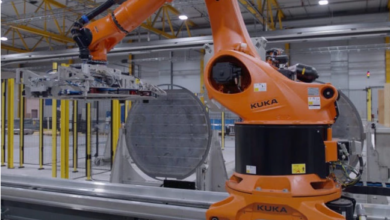Danish PM visits Everfuel in Fredericia; Flexens and Elomatic partner in Finland
Crossbridge and Everfuel will create attractive jobs in Fredericia by building and scaling the PtX-facility.

The Danish Prime Minister, Mette Frederiksen, today (11th November) has visited Crossbridge Energy A/S and Everfuel in Fredericia.
The visit focus remained on jobs in the future green industry in Fredericia and on the collaboration with Everfuel on the future PtX-facility. Crossbridge Energy has stated a clear ambition of becoming a climate-neutral refinery in Fredericia by 2035. A large share of that vision will be accomplished by collaborating with Everfuel on the Power-to-X facility, HySynergy, which will deliver green hydrogen to the refinery.
In the first phase, a 20 MW electrolyser and PtX-facility is set to operate in the second half of 2022. The project is planned to be expanded in phase II to 300 MW in 2025 and possibly to 1 GW in 2030. The largest offtaker of green hydrogen from HySynergy will be Crossbridge Energy, where the facility is being built. HySynergy will have a pipeline directly into the refinery which guarantees a rapid effect on the Danish carbon footprint.
In a separate development, in Finland, Flexens Oy Ab has become a shareholder in Elomatic’s subsidiary Green NortH2 Energy Oy. The joint Power-to-X expertise of Elomatic and Flexens strengthens their position in advancing the hydrogen economy in Southwestern Finland, especially in the marine sector.
Flexens would become a key player in the renewable energy sector, as it invests in energy infrastructure outside the Åland Islands for the first time. Flexens has built its capabilities in the hydrogen sector by initiating and developing the Power2AX project, aiming to implement a hydrogen ferry and local green hydrogen production in the Åland archipelago. Flexens is also a founding member of Hydrogen Cluster Finland (HCF).
Green NortH2 Energy Oy aim is to kick-start the hydrogen economy of Southwestern Finland by producing hydrogen in the city of Naantali. In the first phase, hydrogen will be produced for direct use in the marine and heavy traffic sectors with the co-production of district heat. The second phase is to refine hydrogen to produce synthetic fuels, such as methane and ammonia.
